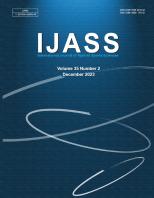The IJASS aims to ensure that all articles published in its journals report on work that is morally acceptable, and expects authors to follow the World Association’s Declaration of Helsinki.
The research protocol must have been approved by the locally appointed ethics committee and informed consent must have been obtained from subjects (or their guardians).
Where there is doubt about research ethics approval, the Editor may request copies of the correspondence between the authors and the research ethics committee and may contact the Chair directly.
Scientific misconduct
There are differing definitions of scientific misconduct. We deal with these problems at the IJASS on a case by case basis while following guidance produced by bodies that include the Committee on Publication Ethics (COPE), the World Association of Medical Editors (WAME) and the International Committee of Medical Journal Editors (ICMJE).
WAME gives a useful overview of misconduct, using a slightly amended version of the US Office of Research Integrity definition of scientific misconduct and including these behaviors:
Falsification of data: ranges from fabrication to deceptive reporting of findings and omission of conflicting data, or suppression and/or distortion of data. Plagiarism: The appropriation of the language, ideas or thoughts of another without crediting their true source and representation of them as one’s own original work. Improprieties of authorship: improper assignment of credit, such as excluding others, misrepresentation of the same material as original in more than one publication, inclusion of individuals as authors who havenot made a definite.
Contribution to the work published or submission of multi-authored publications without the concurrence of all authors. Misappropriation of the ideas of others: an important aspect of scholarly activity is the exchange of ideas among colleagues. Scholars can acquire novel ideas from others during the process of reviewing grant applications and manus. However, improper use of such information can constitute fraud. Wholesale appropriation of such material constitutes misconduct. Violation of generally accepted research practices: serious deviation from accepted practices in proposing or carrying out research, improper manipulation of experiments to obtain biased results, deceptive statistical or analytical manipulations, or improper reporting of results.
Material failure to comply with legislative and regulatory requirements affecting research: including but not limited to serious or substantial, repeated, willful violations of applicable local regulations and law involving the use of funds, care of animals, human subjects, investigational drugs, recombinant products, new devices, or radioactive, biological or chemical materials. Inappropriate behavior in relation to misconduct: this includes unfounded or knowingly false accusations of misconduct, failure to report known or suspected misconduct, withholding of information relevant to a claim or misconduct and retaliation against persons involved in the allegation or investigation.
Many journals, including the BMJ Journals, also include redundant publication and duplicate publication, lack of declaration of competing interests and of funding/sponsorship, and other failures of transparency to be forms of misconduct.
What we do at IJASS if we suspect such misconduct?
We take seriously all possible misconduct.
An Editor has concerns that a submitted article describes something that might be considered to constitute misconduct in research, publication or professional behavior, we may discuss the case in confidence with the IJASS Ethics Committee. If the case cannot be resolved by discussion with the author(s) and the Editor still has concerns, s/he may report the case to the appropriate authorities. If, during the course of reviewing an article, an Editor is ed to possible problems (for example, fraudulent data) in another publication, the IJASS editor may contact the journal in which the previous publication appeared to raise concern.
















